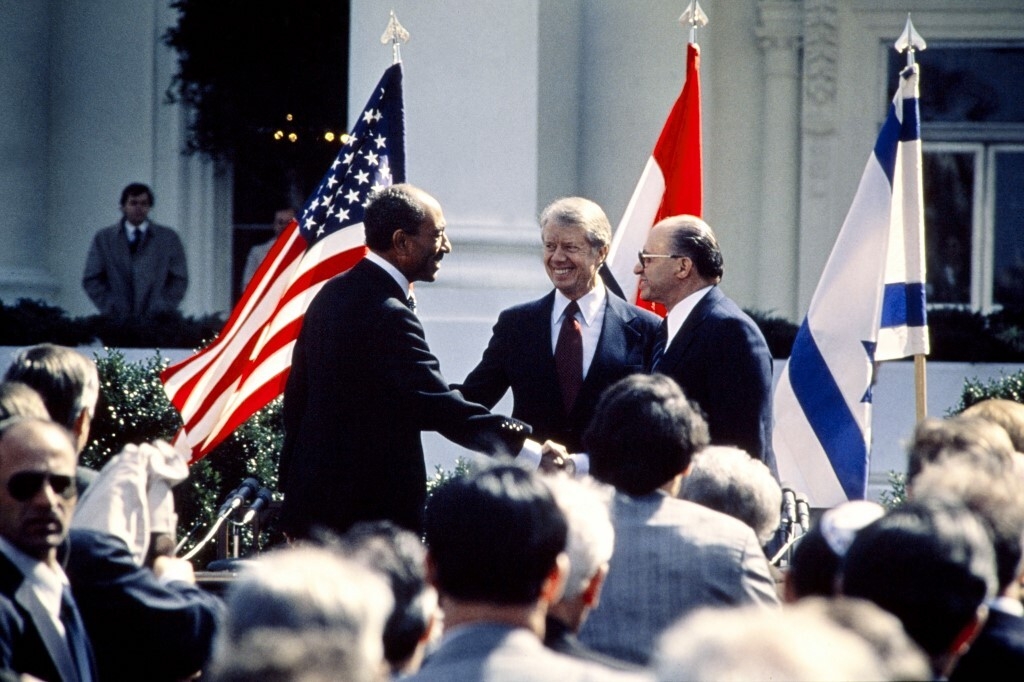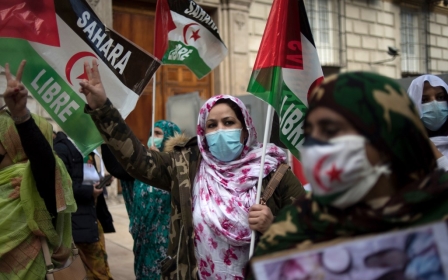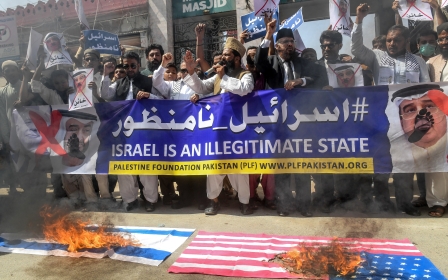Which Middle Eastern and North African countries have normalised relations with Israel?

Morocco on Thursday became the latest country in the Middle East and North Africa (MENA) to normalise relations with Israel.
The kingdom is the fourth country from the region to have established official diplomatic relations with Israel this year. The two have been in direct conflict.
US President Donald Trump, a staunch supporter of Israel, has been a driving force behind the push for normalisation and has not shied away from using political and economic incentives to make the deals happen.
While this year has marked a staunch break from the regional consensus, which has historically stated that any diplomatic rapprochement with Israel should be predicated on a resolution to the Israeli occupation of Palestine, other Arab countries have previously formalised ties.
Here's a chronology of the Middle Eastern countries that have recognised Israel.
New MEE newsletter: Jerusalem Dispatch
Sign up to get the latest insights and analysis on Israel-Palestine, alongside Turkey Unpacked and other MEE newsletters
1979: Egypt
Egypt made history when it became the first Arab country to formally recognise Israel in 1979.
Despite facing opposition both at home and abroad, Egyptian president Anwar Sadat went ahead and signed the Camp David Accords brokered by the United States.
In return for normalising relations, Israel withdrew its troops from the Sinai Peninsula, which it had occupied during the 1967 Middle East War. In exchange, Egypt's parliament voted to repeal its laws on the boycott of Israel.
Following the agreement, Egypt also received $40bn in military aid and $30bn in economic assistance from the United States.
The deal, however, led Egypt to be suspended from the Arab League for 10 years. Syria suspended all relations with Cairo until 2005.
Sadat was assassinated by members of the Egyptian Islamic Jihad in 1981 over his role in normalisation with Israel.
1993: Palestine Liberation Organisation
The Palestinian Liberation Organisation (PLO), at the time the political organisation representing the Palestinian people, had condemned Egypt for its recognition of Israel, and spearheaded the campaign to suspend it from the Arab League.
But in 1993, after secret negotiations in Norway, the PLO formally recognised Israel, with the hope that it would lead to the establishment of a Palestinian state. Israel also recognised the PLO as the representative of the Palestinian people.
The 1993 and 1995 Oslo Accords led to the creation of the Palestinian Authority (PA), with the aim that it would pave the way within five years for the creation of an independent and sovereign Palestinian government and state.
Twenty-seven years later, the PA and PLO are nowhere closer to that goal and Israel's occupation of the Palestinian territories is still in effect - but Palestinian leadership continues to recognise Israel and interact with the country on a range of security, political and financial issues.
1994: Jordan
In 1994, Jordan became the second Arab nation to recognise Israel, ending decades of enmity between the two neighbouring countries.
The Israel-Jordan agreement - also known as the Wadi Araba treaty - led to the normalisation of relations, as well as Israel's recognition of Jordan as the custodian of Muslim and Christian sites in Jerusalem.
Following the agreement, the nations opened their borders, allowing for tourists and business people to work and travel between the two countries.
August 2020: United Arab Emirates
For years, there had been rumours that Israel and the United Arab Emirates had informal diplomatic relations, united by their fight against Iran.
But in August, the UAE became the third Arab state to formally recognise Israel and establish full diplomatic relations under the so-called Abraham Accords.
The agreement paved the way for Israelis to visit the UAE and it established direct flights between the two countries. Israel also agreed to suspend plans for the annexation of large areas of the occupied West Bank, although the expansion of illegal settlements and the expropriation of Palestinian land in the West Bank and occupied East Jerusalem has since gone on unabated.
September 2020: Bahrain
Bahrain quickly followed in the UAE's footsteps, as both countries signed the Abraham Accords deal with Israel in Washington DC on 15 September.
Manama agreed to open embassies, establish online visa systems and launch weekly flights between the two countries.
The Gulf kingdom, however, hesitated to establish full relations due to continued opposition from local civil society groups.
October 2020: Sudan
Sudan became the fifth country in the Arab world to formalise relations with Israel, after Washington decided to remove Khartoum from the State Department's State Sponsors of Terrorism List (SST).
But Sudan has threatened to pull out of its normalisation deal if the United States Congress does not remove the country from the SST by the end of the year, according to reports.
The normalisation agreement has also further strained relations between the military and civilian branches of Sudan's transitional government.
December 2020: Morocco
Morocco formalised relations with Israel on 10 December, after the United States officially recognised the disputed Western Sahara region as belonging to the North African kingdom.
Sources close to the New York Times said that Morocco's King Mohammed VI was initially hesitant about normalising relations, until US officials said Trump could help facilitate billions of dollars worth of investments for Morocco.
Israeli Prime Minister Benjamin Netanyahu has meanwhile said he expects direct flights to begin soon between the two countries.
Middle East Eye delivers independent and unrivalled coverage and analysis of the Middle East, North Africa and beyond. To learn more about republishing this content and the associated fees, please fill out this form. More about MEE can be found here.




